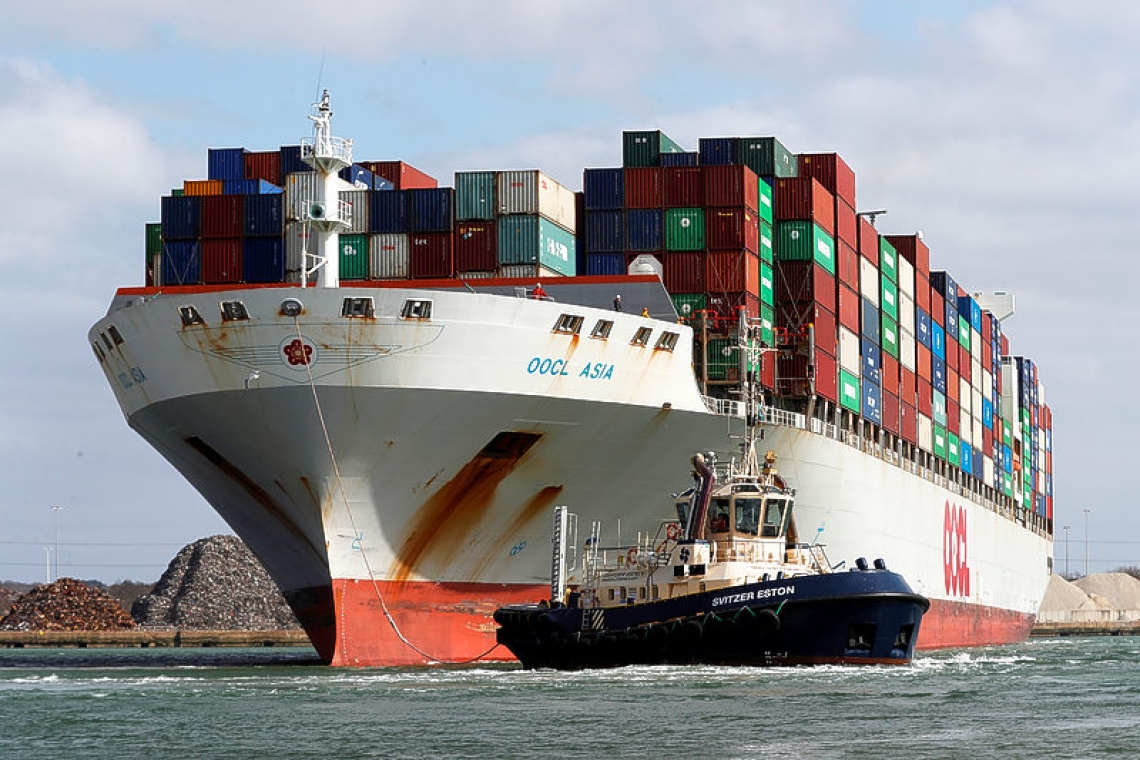LONDON--The $1 trillion container shipping industry is in a slowdown. Literally.
Some shipping lines, whose retail customers are being hammered by the coronavirus pandemic, are reducing sailing speeds and taking longer routes around Africa, avoiding Suez canal passage fees, according to the companies and ship-tracking specialists.
Many are also cutting down the number of voyages and providing short-term storage for clients as the industry, which includes heavyweights like Maersk, MSC and Hapag-Lloyd, faces its biggest downturn since the 2008 financial crisis. The new tactics not only save on costs, but also help adapt to the needs of cash-crunched retailers - among their biggest customers - who are stuck with huge inventory surpluses thanks to COVID-19 store closures and a collapse in consumer demand.
Slower shipping times also means importers can delay payments made on delivery.
From sportswear maker Puma to mall stalwart Gap, many retailers have been forced to reduce or slow down shipments of new merchandise. Civil unrest in the United States has compounded their problems by further clouding the prospect for a recovery in the world's biggest retail sales market.
Puma's Chief Executive Bjorn Gulden, for example, said it was managing some of its excess inventory by stowing it on slow-going ships as stores in the United States and Europe tentatively reopen. However, at the same time, the shipping slowdown has created headaches for those retailers, from Walmart and Amazon to shoe seller Rothy's, who have never stopped selling products to homebound consumers, ranging from books and shoes to exercise equipment, much of it sold online.
Now those retailers are fighting for space on the fewer, faster-moving ships on the high seas. "What we are seeing is quite a mixed situation from cargo owners, some of which are resuming normal shipment of their cargoes, others are requesting routings via longer transit times," said Marcus Leaver, chief operating officer of sea freight at Hellmann Worldwide Logistics, which organizes shipments for companies such as retailers.
A lack of space on ships is leading to more "rollovers", where containers are bumped from packed vessels to later ones, like passengers on oversold flights, according to importers. Spanish retailer Mango, which has continued to sell online during the pandemic, told Reuters it was seeing an increase in service cancellations by shipping companies, which caused instability and "space problems".
It added that 99% of its imports from Asia were now coming by sea because air costs had gone up due to a lack of flights and the priority given to medical equipment.
The stakes are high for the container industry. Retail goods such as clothes, luggage and furniture represent about 15% of shipped volumes, a Reuters analysis of industry data shows.
Soren Skou, CEO of Maersk, the world's biggest container shipping group, said many of its big customers were retailers or suppliers to retailers. "There are some traditional retailers in a lot of trouble and, as you know, some have started to go bankrupt," Skou said last month. "Some customers ask us to delay shipments and we have found extra storage and warehouse facilities for them."
Shereen Zarkani, Maersk's global head of sales, told Reuters: "One customer told us: If you make my container go around the world a couple of times that would be good."
The volume of apparel arriving in the United States by ship dropped nearly 20% in January-May versus the same period last year, and reached 379,910 TEUs (20-foot equivalent container units), data from logistics technology company Descartes showed. Furniture volumes fell over 12% in the same period, while luggage dropped over 34%.







